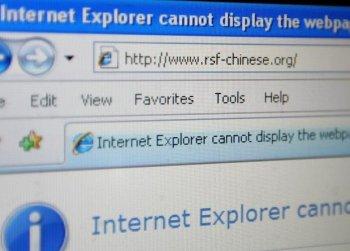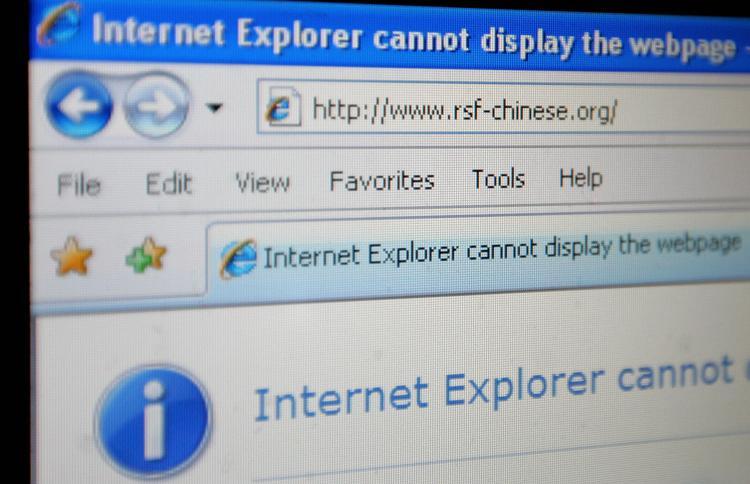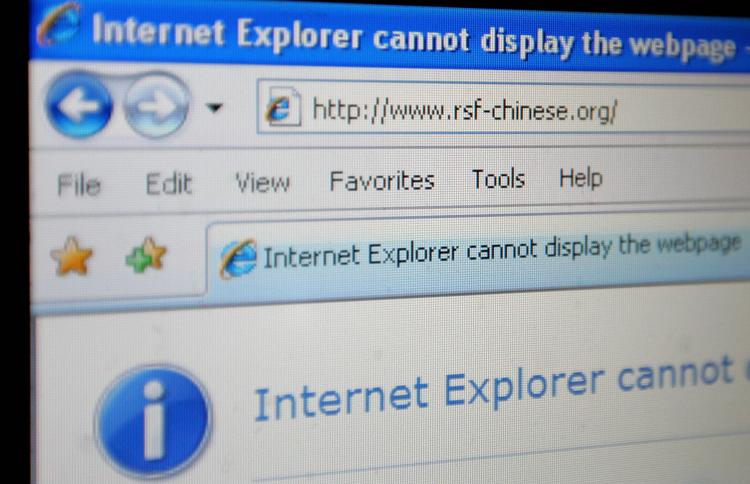A new anti-censorship tool that uses encrypted e-mail messages is under development by the U.S. government. It aims to give uncensored news feeds, and access to Internet circumventing software for users in China to break though the ruling regime’s Great Firewall.
The new system, Feed Over Email (FOE) is currently being tested by the Broadcasting Board of Governors (BBG), which oversees U.S. broadcasting services including Voice of America and Radio Free Asia. The FOE was outlined in a report obtained through a Freedom of Information Act request by nonprofit organization GovernmentAttic.
The FOE system is not intended to replace current anti-censorship software that allows users to browse the Internet freely and discreetly. According to the BBG report, users can “use FOE to download software applications such as Tor, Freegate, or Ultrasurf.”
The FOE has a few fundamental flaws. In order to work, it requires users to have e-mail accounts in the United States, or with Foreign Service providers. It will not work with China-based e-mail accounts.
The system also has security gaps that could place users at risk of being caught by the Chinese regime’s Internet police. It does not require SSL, which means the activity of a user could be visible to government monitoring if they don’t configure their e-mails properly. It has no way to authenticate messages as they come in to discern trusted content. It also could be vulnerable to SQL injection attacks that could compromise its server, according to a blog entry by Steve Weis, former member of the applied security group at Google.
While software such as FOE is being funded by taxpayers, the few successful anti-censorship systems are still receiving little government support.
Among Chinese users, tools from the Global Internet Freedom Consortium are by far the most popular and most successful for breaking through the Chinese regime’s Internet blockade. The volunteer-run organization created software including FreeGate and UltraSurf, both of which help more Chinese citizens break through government censors than every other system combined. Both systems are currently limited only by how many users their servers can hold.
The BBG’s FOE software works by hiding keywords that government censors could be searching for. Using e-mail messages as a transport, the FOE works similar to an RSS feed for uncensored news. It can also send small files, which gives users access to full-fledged tools for circumventing Internet blockades.
Initial tests of the FOE were successful, including 2010 tests in Shenzhen and in Beijing, China, in 2010. The report states, however, “While FOE performed well in all tests, it is unclear how well the technology will work when it opens to the public.”
The new system, Feed Over Email (FOE) is currently being tested by the Broadcasting Board of Governors (BBG), which oversees U.S. broadcasting services including Voice of America and Radio Free Asia. The FOE was outlined in a report obtained through a Freedom of Information Act request by nonprofit organization GovernmentAttic.
The FOE system is not intended to replace current anti-censorship software that allows users to browse the Internet freely and discreetly. According to the BBG report, users can “use FOE to download software applications such as Tor, Freegate, or Ultrasurf.”
The FOE has a few fundamental flaws. In order to work, it requires users to have e-mail accounts in the United States, or with Foreign Service providers. It will not work with China-based e-mail accounts.
The system also has security gaps that could place users at risk of being caught by the Chinese regime’s Internet police. It does not require SSL, which means the activity of a user could be visible to government monitoring if they don’t configure their e-mails properly. It has no way to authenticate messages as they come in to discern trusted content. It also could be vulnerable to SQL injection attacks that could compromise its server, according to a blog entry by Steve Weis, former member of the applied security group at Google.
While software such as FOE is being funded by taxpayers, the few successful anti-censorship systems are still receiving little government support.
Among Chinese users, tools from the Global Internet Freedom Consortium are by far the most popular and most successful for breaking through the Chinese regime’s Internet blockade. The volunteer-run organization created software including FreeGate and UltraSurf, both of which help more Chinese citizens break through government censors than every other system combined. Both systems are currently limited only by how many users their servers can hold.
The BBG’s FOE software works by hiding keywords that government censors could be searching for. Using e-mail messages as a transport, the FOE works similar to an RSS feed for uncensored news. It can also send small files, which gives users access to full-fledged tools for circumventing Internet blockades.
Initial tests of the FOE were successful, including 2010 tests in Shenzhen and in Beijing, China, in 2010. The report states, however, “While FOE performed well in all tests, it is unclear how well the technology will work when it opens to the public.”







